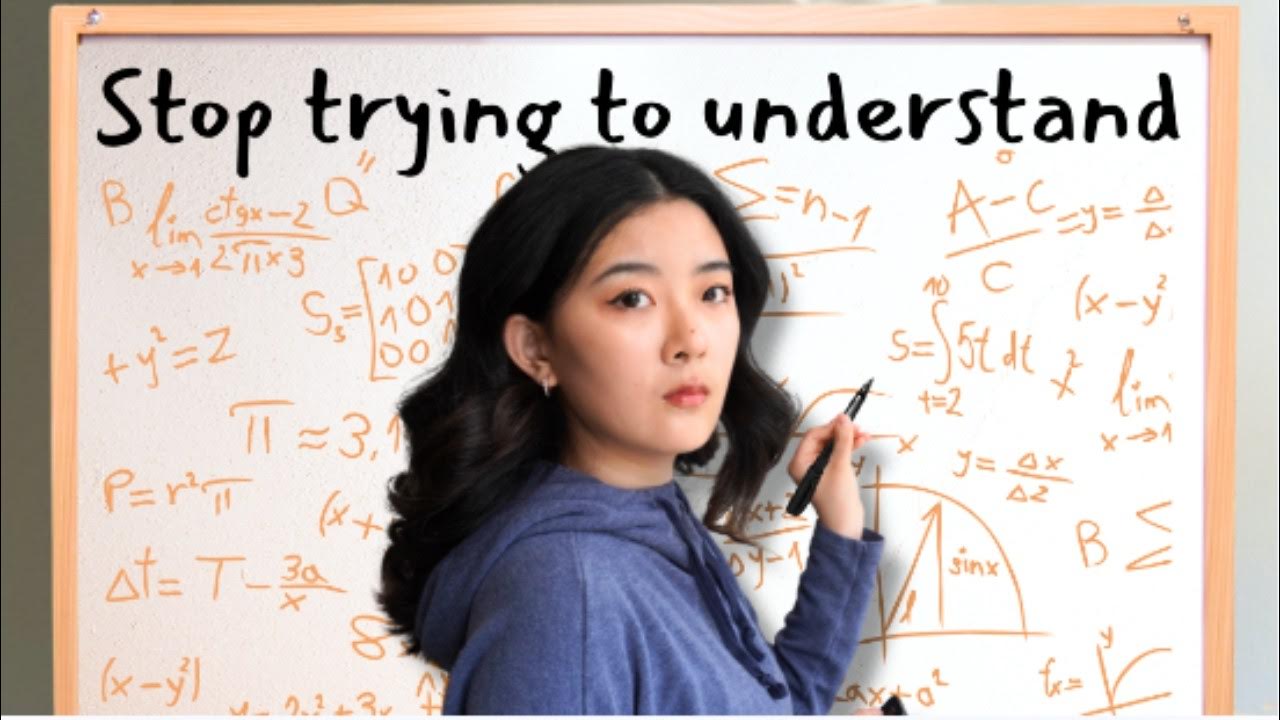Become good at Math in 9 mins: How to self-study Math easily
Summary
TLDRIn this video, the speaker shares their step-by-step process for self-studying math, drawing from their personal experience of studying math and operations research at Columbia University. They explain a four-part framework for learning: understanding definitions, working through examples, addressing knowledge gaps, and practicing exercises. The video emphasizes the importance of focus, active learning, and consistent practice in mastering mathematical concepts. The speaker also highlights the value of using resources like answer keys and online platforms, such as Skillshare, to further deepen one's understanding.
Takeaways
- 😀 Self-studying math requires focus and dedication, as it's easy to lose track if you get distracted.
- 😀 Understanding definitions is the first step in learning math; these are fundamental rules or theorems to help guide problem-solving.
- 😀 Examples help illustrate how to apply definitions and theorems in practical scenarios; this step is crucial for learning math concepts.
- 😀 Practice is essential in math. To test your understanding, work through exercises that are similar to the examples.
- 😀 It's okay to not understand everything right away. Fill in knowledge gaps only when needed, and focus on maintaining momentum in your learning.
- 😀 Limit distractions from the internet while studying. Search for specific clarifications only when necessary to avoid getting sidetracked.
- 😀 Check answer keys after solving problems to learn from mistakes and ensure you understand the correct method.
- 😀 A balanced study session should allocate most of the time to practicing problems, with some time spent reviewing examples and definitions.
- 😀 Repetition through practice will help with memorizing key concepts, formulas, and theorems over time.
- 😀 Use a formula sheet to help memorize essential formulas and theorems, and challenge yourself to recall them without looking at the sheet occasionally.
- 😀 Studying math effectively requires consistent effort and discipline. Incorporating self-reflection through exercises and answer checks will improve your understanding and retention.
Q & A
Why is self-studying math important, according to the speaker?
-The speaker emphasizes that self-studying math is crucial because it allows for a deeper understanding of concepts, especially when lectures might not be engaging or clear enough. It helps overcome challenges like losing focus during classes or dealing with professors who might not be effective at teaching.
What are the four main parts of the speaker’s math learning framework?
-The four main parts of the math learning framework are: 1) Definitions, 2) Examples, 3) Knowledge Gaps, and 4) Exercises.
How should you approach learning a new math topic?
-Start by reading and understanding the definition or theorem. Then, work through examples to see how the definitions are applied. If there are gaps in understanding, look them up briefly to stay on track. Finally, practice solving exercises to apply what you've learned.
What should you do if you don’t understand a definition while studying?
-If you don’t understand a definition, it's important not to get discouraged. You can skip it for the moment and revisit it later. The key is to focus on applying the concepts through examples and exercises while marking areas of confusion for later review.
Why are examples crucial in the math learning process?
-Examples help illustrate how to apply definitions and theorems in real problems. They show how the theory works in practice, making it easier to understand and internalize the concepts. The speaker compares definitions to tools and examples to ways of using them effectively.
What’s the role of filling knowledge gaps in the study process?
-Filling knowledge gaps ensures that any unclear or missing information is addressed. This step involves looking up specific details when you don't understand a concept fully but should be done sparingly to avoid distractions from the main topic.
How does the speaker recommend using external resources like Google?
-The speaker recommends using Google for quick clarifications when needed but advises staying focused. The search should be as specific as possible to avoid getting sidetracked. The key is to resolve gaps without getting drawn into unrelated topics.
What’s the suggested number of practice problems for each topic?
-The speaker suggests doing between 10 to 20 practice problems for each topic to reinforce learning and build proficiency.
How should you approach the practice questions in your study sessions?
-Practice questions should be tackled independently, without relying heavily on the examples. After attempting the problems, check the answer keys and try to understand where you went wrong or right. This ensures you learn the correct methods and solidify your understanding.
What is the role of repetition in memorization for math?
-Repetition plays a critical role in memorization by reinforcing definitions, formulas, and theorems through continuous practice. Writing out formulas and revisiting them during practice helps cement them in your memory over time.
Outlines

This section is available to paid users only. Please upgrade to access this part.
Upgrade NowMindmap

This section is available to paid users only. Please upgrade to access this part.
Upgrade NowKeywords

This section is available to paid users only. Please upgrade to access this part.
Upgrade NowHighlights

This section is available to paid users only. Please upgrade to access this part.
Upgrade NowTranscripts

This section is available to paid users only. Please upgrade to access this part.
Upgrade NowBrowse More Related Video

The math study tip they are NOT telling you - Ivy League math major

I use PowerPoint to edit all* videos (and hit 100k subs!)

7 tips for studying math

Why you SHOULD study biomedical science | topics & skills you will learn + career options

Becoming good at math is easy, actually

First Week at Peking University: Unfiltered Thoughts | LifeinChina ep 4
5.0 / 5 (0 votes)